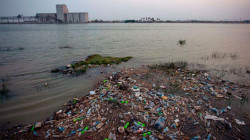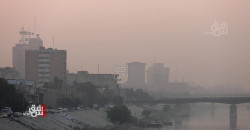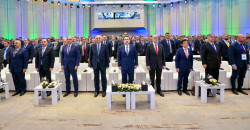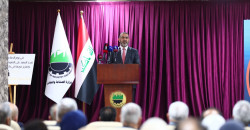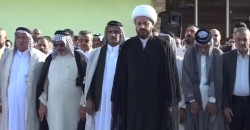Mesopotamia’s ancient rivers in peril: Iraq's battle against water scarcity
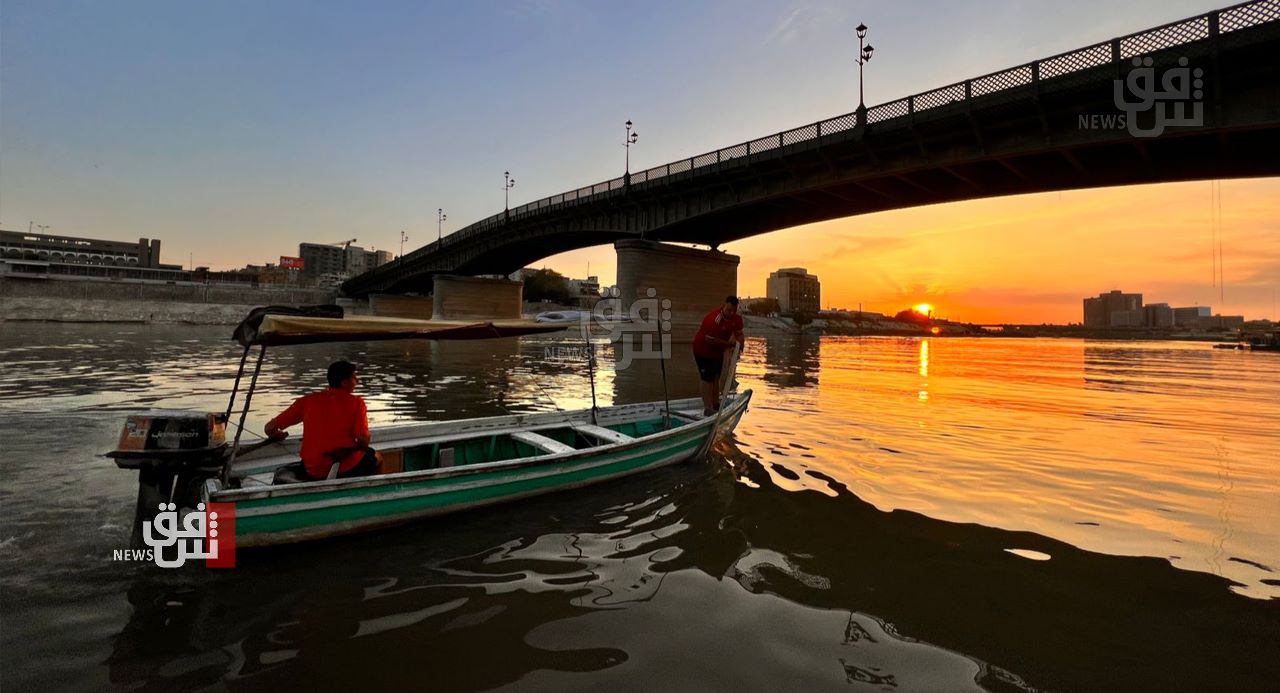
Shafaq News/ In the heart of the ancient land of Mesopotamia, Iraq, where the Tigris and Euphrates rivers once nurtured thriving civilizations, now faces an unprecedented water crisis. The lifeblood of the nation, these rivers, are under severe strain from drought and climate change, threatening the country’s future.
Mesopotamia
Iraq lies in the historical region of Mesopotamia, also known as the "Land Between Two Rivers," a reference to the Tigris and Euphrates rivers. These rivers, originating in the mountains of eastern Turkiye, flow through Turkiye, Syria, and Iraq before converging in the Iraqi city of Al-Qurnah to form the Shatt al-Arab waterway, which empties into the Arabian Gulf. The Tigris-Euphrates basin also extends into western Iran, as many tributaries of the Tigris originate in the Iranian Zagros Mountains.
The Tigris and Euphrates river system is facing significant challenges, including declining water levels and quality. Factors such as reduced water productivity, climate change, and dam construction are threatening the river system, causing long-term environmental damage.
Roots of the Water Crisis in Iraq
Iraq has been grappling with water scarcity since the 1990s, largely due to the "water war" waged by upstream countries, compounded by reduced rainfall and snowfall. These factors have contributed to a decline in water storage across dams, lakes, and reservoirs throughout the country.
The crisis reached a critical point in the past four years, with drought severely affecting both the Tigris and Euphrates. This has exposed riverbeds in certain areas, significantly shrinking the marshes and wetlands and leading to the death of large numbers of livestock and a major reduction in agricultural land.
Several issues, including poor water management, climate change, and reduced supply from Turkiye and Iran, have worsened Iraq's water crisis. UN data shows 90% of Iraq's rivers are polluted, and by 2035, the country is expected to meet only 15% of its water needs.
Water Scarcity in Iraq
“Iraq has been named the fifth-most vulnerable country to climate change, affected by soaring temperatures, insufficient and diminishing rainfall, intensified droughts and water scarcity, frequent sand and dust storms, and flooding,” the International Organization for Migration (IOM) affirmed.
Iraq's water sources are largely dependent on snowmelt and rainfall in the river basin of upstream countries, Turkiye and Iran, according to water expert Tahseen Al-Moussawi.
Speaking to Shafaq News agency, Al-Moussawi warned that "Iraq is facing water scarcity, with upstream basin countries expected to see over 30% less rainfall by 2025, signaling continued drought.”
He further confirmed that Iraq is in a critical stage of water stress for the fifth consecutive season, as the inflows from upstream countries are insufficient for consumption, leading to a reduction in the winter plan. “This is worsened by pressure from farmers, agricultural workers, and political disputes among affected provinces,” he added.
Opposite Perspective
Water expert Adel Al-Mukhtar told Shafaq News, “The good news is a water reserve of 15 billion cubic meters, with continued inflows from Turkiye on the Tigris and rising levels on the Euphrates, offering hope despite the drought and low rainfall.
Al-Mukhtar predicted that the water situation this winter and the upcoming summer will be reassuring, but it depends on heavy rains. “Last winter's inflows exceeded 50 billion cubic meters, enabling large-scale planting,” he explained, expressing hope for similar rainfall to prevent drought next summer.
In contrast, Iraqi Ministry of Agriculture spokesperson Mohammed Al-Khazai stated, "The rainfall this season is sufficient, and the approved winter plan has been implemented without any changes,” noting that "the winter plan covers 4.8 million dunams for wheat, including irrigated and desert lands, 1.05 million dunams for orchards, and 200,000 dunams for barley.".
Expected Rainfall
Light to moderate rain usually starts in early November, but sometimes low-pressure systems weaken, causing a drop in rainfall, noted Amer Al-Jabri, Director of Media at the Iraqi Meteorological Organization.
“Iraq is currently experiencing a weak low-pressure system east of the Mediterranean, bringing light rain,” he said in an interview with Shafaq News Agency. “However, we that this season's rainfall will reach average levels.”
Efforts Made: Water is Life
In August 2024, the Iraqi Ministry of Water Resources signed a contract with a coalition of Italy's Hydro Nova and Jordan's Concorde companies to "ensure a sustainable water future, develop irrigation systems, and address the impacts of climate change on rivers." The financial details of the contract were not disclosed.
In July 2024, the United Nations in Iraq, in collaboration with the Ministry of Water Resources, launched the "Water is Life" campaign to address Iraq’s severe water crisis. The year-long campaign, titled "Water is Life - Every Drop Matters," aims to raise awareness among Iraqis about the critical state of the country’s water resources and to encourage a sense of responsibility in mitigating the crisis.
According to the UN, the campaign will unfold in four phases throughout 2025. The first phase focuses on raising awareness about the water crisis and the effects of climate change. The next phase will introduce the key players in water resource management in Iraq, promoting responsibility and cooperation.
In the third phase, the campaign will highlight ongoing projects and efforts by the Iraqi government and UN agencies, showcasing successes and current initiatives. The final phase will focus on future plans and strategies to address the water crisis, emphasizing Iraq’s role in international forums and efforts to secure support and funding for water projects.
“The Water is Life campaign represents a unified effort by the UN agencies and the Iraqi government to address one of the most pressing issues facing the country. Through this campaign, significant progress can be made in water conservation and management, ensuring a sustainable and better future for all Iraqis,” the UN indicated.
Despite these efforts, water expert Al-Moussawi argued that Iraq has not yet reached strategic solutions, explaining, “Current solutions are temporary, yet they are evolving into strategic plans, worsening the situation and exacerbating water problems…Despite international warnings about climate change and desertification, the government has failed to find lasting solutions, relying on solutions that are beyond its reach.”
